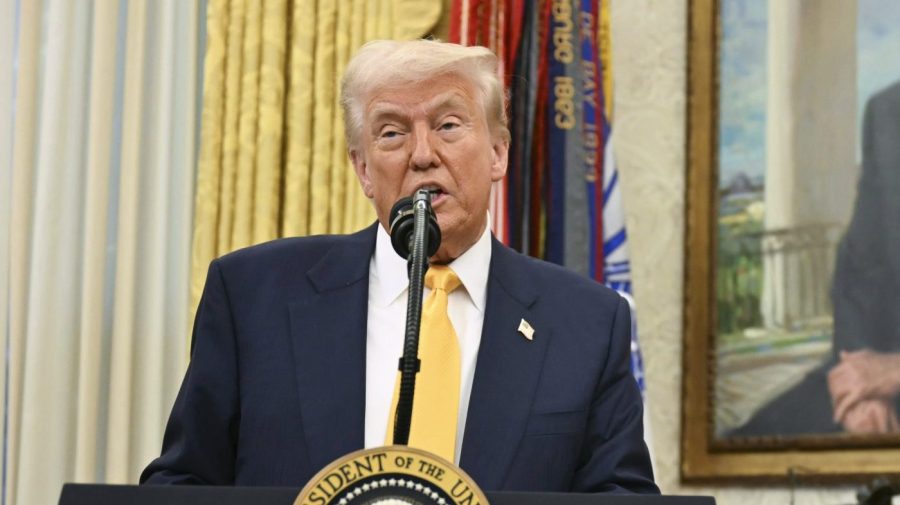
President Trump signed an order on Friday that seeks to protect American companies and innovators from what he called “overseas extortion,” adding to a bevy of actions proposed in his first month in office.
Under the order, tariffs could be imposed on foreign governments in response to “one-sided, anti-competitive” taxes and other fines levied on the U.S.
The “Defending American Companies and Innovators From Overseas Extortion and Unfair Fines and Penalties,” order greenlights the Trump administration’s ability to offset any digital service taxes (DSTs), policies, fines and other actions foreign nations impose on U.S. corporations, the memo states.
“My Administration will not allow American companies and workers and American economic and national security interests to be compromised by one-sided, anti-competitive policies and practices of foreign governments,” Trump wrote Friday.
“American businesses will no longer prop up failed foreign economies through extortive fines and taxes,” he added.
The order directs the U.S. trade representative to reopen investigations of DSTs which were started under Trump’s first term and probe “any additional countries that use a DST to discriminate against U.S. companies.” The president’s nominee for the position, Jamieson Greer, is still awaiting Senate confirmation.
European countries, including Austria, Spain, Italy and France, alongside Canada and India, have imposed taxes on the total revenue of tech companies such as Apple, Google, Amazon and others operating inside them.
The administration will also see if any of the policies or taxes imposed by the European Union or the United Kingdom incentivize American companies to “develop or use products and technology in ways that undermine free speech or foster censorship.”
“All of these measures violate American sovereignty and offshore American jobs, limit American companies’ global competitiveness, and increase American operational costs while exposing our sensitive information to potentially hostile foreign regulators,” the White House said.
Just over a week ago, Trump signed off on a memo to propose reciprocal tariffs that could be imposed against allies and adversaries. They would be adjusted based on the country in question, looking at five different areas, including exchange rates, tariffs imposed by the country on U.S. products, taxes imposed and others.
The president has also threatened Mexico, Canada and China with additional tariffs, and proposed new taxes on certain goods imported into the U.S., such as aluminum, steel and lumber.












